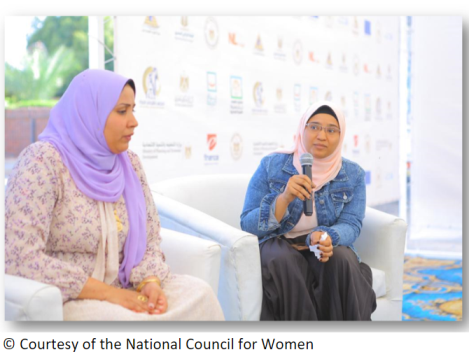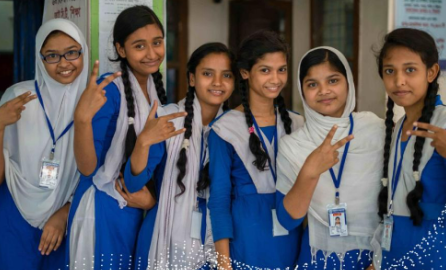Financial inclusion and recovery after COVID-19 in Egypt?

-
Gender marker: G2-Promotes gender equality as a primary objective
-
Period of implementation: 2021 - 2025
-
Amount: EUR 6,000,000
-
Geographical area: Southern Neighbourhood
-
Implementing partners:
-
Working in partnership with the Central Bank of Egypt
-
Links to the project:
-
GAP III’s Areas:
-
Gender-Based Violence
-
Economic and social empowerment
-
Green and digital transformation
-
Financial inclusion is an important tool to boost women’s economic empowerment. It increases their capacity to face risk and unexpected expenses and to participate in sustainable economic growth. The COVID-19 pandemic created significant challenges for all societies worldwide. The moment of recovery and response since 2020 has created an opportunity for reform to enhance commitments towards gender equality.
In Egypt, this moment is being used to help rural women with their financial inclusion and leadership. Rural women in Egypt are disproportionately affected by multidimensional poverty, gender-based violence and discrimination. They are often excluded from formal banking services due to lack of official identification, lack of mobile phones or other forms of technology, and lower financial capability. To address these gaps, the National Council for Women and the Central Bank of Egypt, in partnership with the European Union and UN Women, are investing to significantly increase women’s financial inclusion.
The project seeks to target these issues and build the resilience of rural women through socio-economic interventions that focus on financial inclusion, economic empowerment and protection from gender-based violence. The EU-supported action is led by the National Council for Women in partnership with the Central Bank of Egypt. It is implemented with technical support from UN Women Egypt. The action significantly contributes to the government’s nationwide women’s financial inclusion programme entitled “Ta7wisha” or “Savings” in Egyptian slang language. Other initiatives such as the National Family Development Initiative and National Banks are also part of the programme, which is supported by the EU and the Netherlands. It is also an important part of the Team Europe Initiative.
Through this EU-supported action, around 100,000 women and girls are targeted to participate in Savings Groups, also known as Village Savings and Loans Associations (VSLAs). The development and expansion of these digitised financial tools allow women to save and access micro-loans; increase their financial literacy and awareness of social issues (including the prevention and protection from violence); and be integrated into the formal economy through digital banking. Other support focuses on integration into value chains and markets, access to productive assets and business development services and facilitating the issuance of national ID cards for rural women. This support enables women to access the banking system and benefit from financial services, including opening a bank account and accessing credit. Having an ID helps women access other services, including social protection.
The EU-UN Women partnership is contributing to Government/Private sector efforts under “Ta7wisha” to ensure the digitalisation of VSLAs through the development of an unprecedented mobile application specifically designed to accelerate women's access to banking services.
The wider national programme targets 1.2 million women across 20 governorates and supports women's financial and economic inclusion through various channels besides the Digital VSLA, such as organising banking simulations in villages, and a national raising awareness campaign. The national programme has also developed a unified training tool kit that has been designed to empower and enhance the cascading of awareness and knowledge to rural women. This tool kit is utilised during the capacity development sessions that follow the digital savings and lending sessions and is not only limited to the saving group methodology but expands to raise awareness on topics related to financial and digital literacy and social empowerment, among many other topics.
As a result of these activities, rural Egyptian women are increasingly integrated into economic life and are using this new power to strengthen their own positions - both personally and in society.
It is important to note that women’s financial and digital inclusion is a key national priority of Egypt’s National Population Strategy, which aims to strengthen women’s reproductive rights and promote voluntary and informed choices about family planning. The EU has a significant programme in support of the National Population Strategy (EUR 27 million), which complements its support for women’s financial inclusion, both of which contribute to women’s empowerment at large.
“This programme is a success, and it will transform rural women’s lives. It will enhance their living conditions, and help them set goals, dreams, and plans to achieve.” Safaa Aladin Samir, Facilitator
